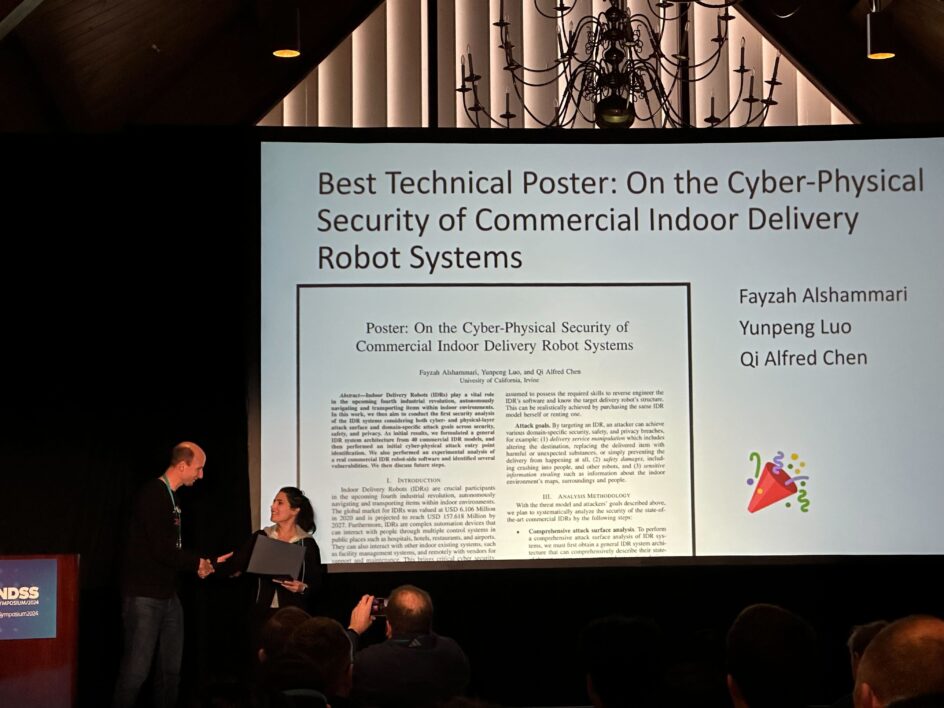ICS Researchers Awarded Best Technical Poster at NDSS

According to a 2023 Market Research Report, the Restaurant Delivery Robots market industry is projected to grow from $13 billion to more than $99 billion by 2032. “Indoor delivery robots, or IDRs, are under rapid commercial deployment today in restaurants, hotels, hospitals, and airports,” says Alfred Chen, an assistant professor in UC Irvine’s Donald Bren School of Information and Computer Sciences (ICS). “However, due to the cyber-physical nature of such systems, tremendous security and safety damages can be caused if they are under attack.”

To prevent such attacks, computer science Ph.D. student Fayzah Alshammari is studying IDR vulnerabilities. “Fayzah’s work aims to perform the first security analysis of such systems in real-world commercial settings,” says Chen, “which is both ambitious and highly necessary.”
This research is already garnering attention and recently received the Best Technical Poster Award at the Network and Distributed System Security Symposium (NDSS 2024), a top-tier conference in the security area. Alshammari worked with Chen and fellow ICS graduate student Yunpeng Luo on the poster, titled “On the Cyber-Physical Security of Commercial Indoor Delivery Robot Systems.”

“We’ve conducted an in-depth analysis to outline a general system architecture for IDRs, derived from examining top commercial models, and identified key attack entry points,” says Alshammari. “Our findings include vulnerabilities in robot-side software, emphasizing the need for enhanced security measures to protect against potential cyber-physical attacks and ensuring the safety and privacy of environments where IDRs operate. We think this analysis is foundational in developing robust security frameworks for emerging robotic vehicle technologies.” Indeed, such work is vital in the era of the fourth industrial revolution.
“I am really glad that Fayzah’s passion and hard work in this direction are recognized by the top-tier security community,” says Chen, “and I am looking forward to the continued success of her in both this project and her future career.
— Shani Murray